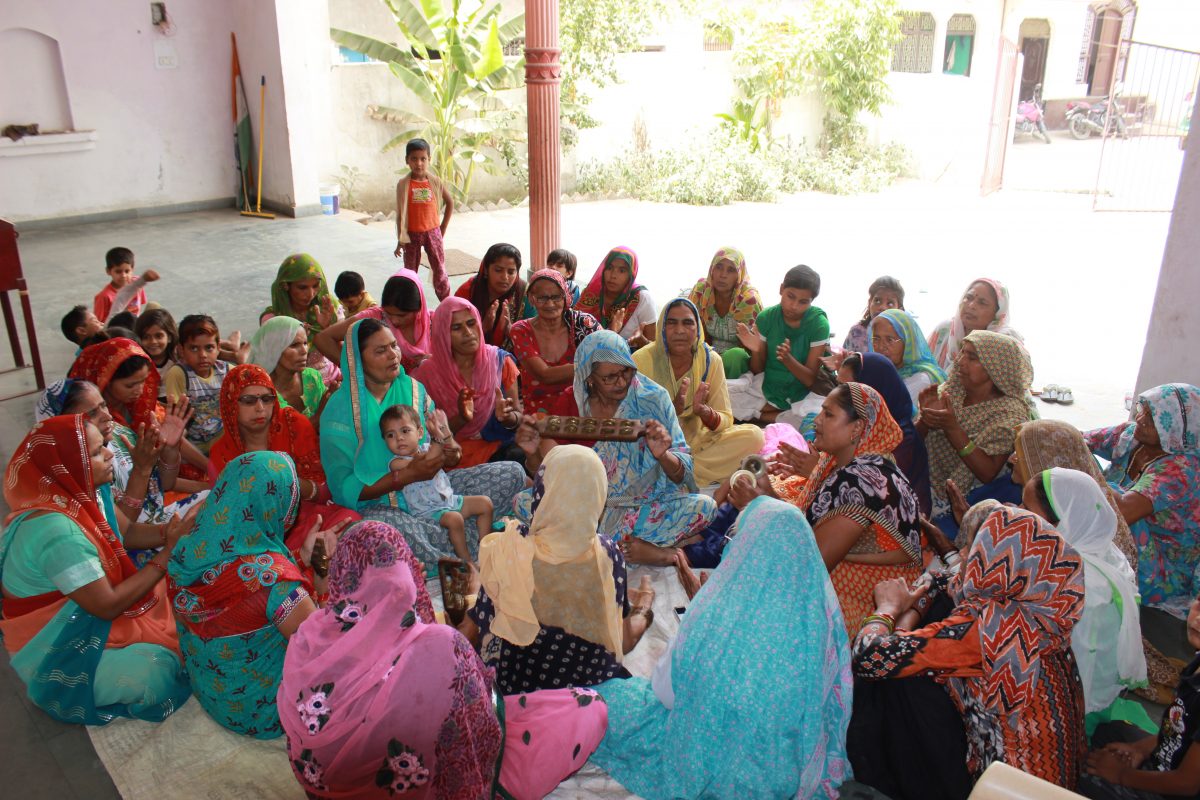Chithara, a small village with a population of just over 7,500 people, is being helped by two academicians at the Shiv Nadar University in Delhi NCR

A folk choir comprising women in the village of Chithara, Uttar Pradesh. Photo: Courtesy of Shiv Nadar University
In the process of creating a model biodiversity register of flora and fauna in a small village called Chithara in Uttar Pradesh, Dr. Jyoti Kumar Sharma and Dr. Tulika Chandra from Delhi NCR’s Shiv Nadar University discovered nearly 300 folk songs that were on the verge of being forgotten.
Dr. Sharma, Head at the Center For Environmental Sciences & Engineering and Dr. Chandra – an associate professor at Department of English, School of Humanities and Social Sciences – say they found a “folk song culture not known to outsiders” while conducting a workshop on biodiversity in the Chithara, which is about 30 kilometers from Noida. Chithara’s elected Gram Pradhan connected the researchers to a villager known for his “trove of knowledge of songs passed on from generations through oral tradition.”
Chandra and Sharma add over a joint email interview, “Initially it was challenging for us to make a connection with him as he resisted sharing any information. But after continuous follow-ups, the villager shared some of the songs that he had written roughly in a notebook. That was our breakthrough.”
A group of men singing folk songs in Chithara, Uttar Pradesh. Photo: Courtesy of Shiv Nadar University
Folklores, songs for every occasion – like religious rituals or wedding ceremonies – were slowly sought out by the team and the number of songs rose from 190 initially to over 300. The team is now in the process of documenting and preserving the songs in an “audio-visual format” as well as in the form of a book. “These include genres like Kissa (stories from history), Ragni (the region’s own form of spoken word poetry), bhajan and aarti (devotional songs), and geet (songs sung during wedding, child birth, etc).” The book, called Folk Songs: Traditional Knowledge: Folk Songs of Upper Doab Region of Uttar Pradesh, will be launched by the end of the year with digital access as well.
It’s technology itself, however, that has been blamed for these folk songs losing relevance and almost being forgotten. With newer generations reportedly taking less of an interest in Chithara’s culture and traditions, Chandra and Sharma found that the folk songs were difficult to pass down through oral tradition. The researchers did manage to record the songs as well as document the lyrics, but they note, “The songs recorded by us are the property of folk singers and/or the village community. If we do plan to make it available to the public, we will do so only with their consent.”
The aim of the research, however, has been met for Chandra and Sharma, considering the number of songs and “rich heritage” they found just in a relatively small village. The duo add, “Folklore is a thriving, living entity. It will go on, maybe, the form and content may evolve.”
The hip-hop artist reflects on his 2024 journey, including his performance in India, acting projects,…
‘Happiness’ highlights why K-zombies matter. It questions what differentiates humanity and monstrosity and what 'happiness'…
"It's not my moment, it’s her moment," the actor told Men's Health
The grime star pleaded guilty to the charge and was also fined about $2,400
Documentary on the embattled music mogul will premiere later this month on Peacock
"I’m honored to contribute to this legacy doing what I love most, rap," Fiasco wrote